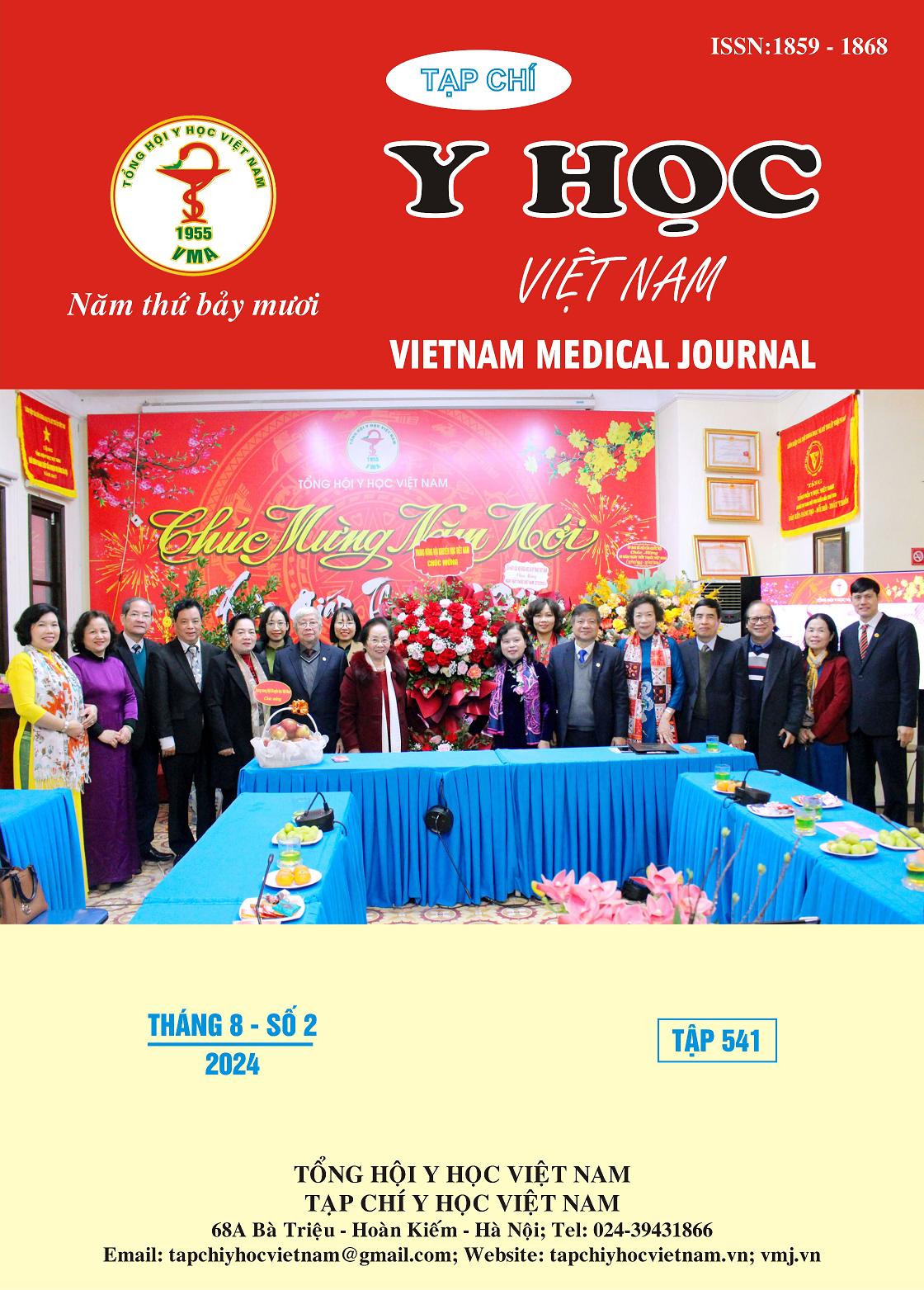PSYCHOSOCIAL SUPPORT NEEDS AND PREDICTIVE FACTORS RELATED TO PSYCHOSOCIAL SUPPORT NEEDS AMONG CANCER PATIENTS AT HO CHI MINH CITY ONCOLOGY HOSPITAL
Main Article Content
Abstract
Psychosocial support is increasingly recognized as a crucial factor in enhancing the mental well-being, quality of life, and treatment outcomes of cancer patients. However, studies investigating the social support needs of cancer patients in Vietnam remain limited. This study aims to identify the psychosocial support needs and predictive factors associated with this demand among cancer patients undergoing treatment at the Ho Chi Minh City Oncology Hospital. A cross-sectional study was conducted on 370 cancer patients aged 18 and older undergoing treatment at the Ho Chi Minh City Oncology Hospital from June to October 2022. Stratified sampling method was used to determine the sample size in each department, and consecutive sampling was performed in each department until the estimated sample size was reached. A structured questionnaire comprising demographic characteristics, disease status, and the outcome measure, Psychosocial Need Inventory (PNI), was utilized. The results from the multivariate model indicate that factors including gender, education, marital status, comorbidities, children under 18, and treatment modality may indicate which demographic groups exhibit higher levels of social and psychological support needs. Specifically, according to the multivariate linear regression equation y = 3.13 + 0.25*gender + 0.13*education level + 0.16*marital status + 0.20*comorbidities + 0.12*having children under 18 + 0.12*treatment modality, the highest predicted support needs are for female patients with an education level of at least high school, who are widowed or separated, have two or more children under 18 requiring care, have comorbidities, and are undergoing inpatient treatment. The support needs scores vary depending on the individual background characteristics of each patient. This result underscores a general high overall demand for social and psychological support across the cancer patient population sampled.
Article Details
Keywords
Psychosocial Need Inventory need, cancer patient, related factors.
References
2. Global Burden of Disease 2019 Cancer Collaboration, Kocarnik JM, Compton K, et al. Cancer Incidence, Mortality, Years of Life Lost, Years Lived With Disability, and Disability-Adjusted Life Years for 29 Cancer Groups From 2010 to 2019: A Systematic Analysis for the Global Burden of Disease Study 2019. JAMA Oncol. 2022;8(3): 420-444. doi:10.1001/ jamaoncol.2021.6987
3. Israel KC, Baruiz CP, Solis SH. Psychosocial needs and their determinants among patients with cancer. SPMC J Health Care Serv. 2016; 2(1):1. https://n2t.net/ark:/76951/ jhcs79xnr8
4. Phạm HN, Đặng TNT. Các yếu tố liên quan đến chất lượng cuộc sống của người bệnh ung thư đại trực tràng. VMJ. 2023;526(1A). doi:10.51298/vmj. v526i1A.5328
5. Hoàng Thị Quỳnh (2017). Chất lượng cuộc sống của bệnh nhân ung thư và các yếu tố liên quan tại bệnh viện Ung Bướu Tp.HCM. Y Học Thành Phố Hồ Chí Minh, 21 (1), 149-158.
6. Đinh Thị Linh Chi. Chất lượng cuộc sống và nhu cầu hỗ trợ tâm lý xã hội ở bệnh nhân ung thư vú tại bệnh viện Ung bướu Thành phố Hồ Chí Minh năm 2021. Khóa luận Tốt nghiệp YHDP 2021, Đại học Y Dược TP Hồ Chí Minh.
7. Võ Ý Lan (2020). Khả năng ứng phó với chẩn đoán - điều trị và các yếu tố liên quan ở bệnh nhân ung thư vú tại bệnh viện Ung Bướu Tp.HCM. Tạp chí Ung thư Học Việt Nam, 2 (5), 463-469.


